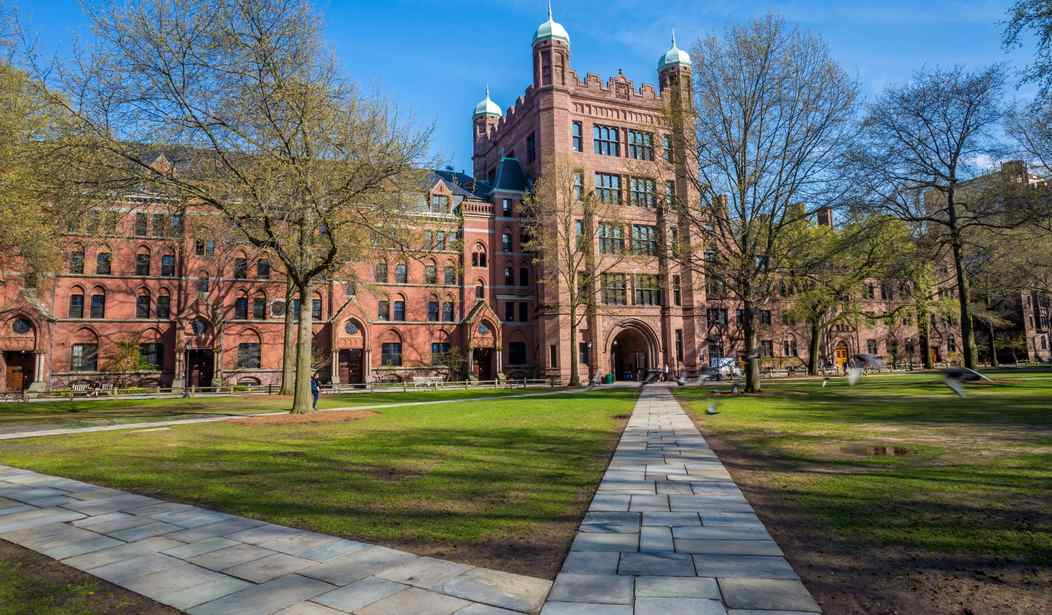Last week, a student panel at Yale University suggested that white supremacy is central to nonprofit charities. According to Yale students, the “white savior” mentality turns charities into a racist and oppressive “nonprofit industrial complex” keeping people of color down.
“The nonprofit industrial complex is very real and very alive in New Haven and needs to be dismantled just like any other oppressive system,” Kerry Ellington, organizer for People Against Police Brutality, argued. “White folks are centering themselves in these spaces and don’t know how to listen to the communities they serve.”
The U.S. Health Justice Collaborative, an initiative started by students in Yale’s health professional schools, organized and hosted the event. The panelists included a journalist, nonprofit directors, and several organizers. Each of them discussed how their careers in nonprofits involved “white saviorism.”
Over 1,300 people said they were “interested” in the event on Facebook, and many attendees were turned away at the door, organizer Robert Rock, a senior with the class of 2018, told the Yale Daily News. Those turned away could watch the event livestreamed on Facebook.
Barbara Tinney, executive director of the New Haven Family Alliance and a member of the panel, described her initial shock at the “audacity” of the event’s title: “Paved With Good Intentions: White Saviorism and the Nonprofit Industrial Complex.” Even so, Tinney said the panel echoed themes she had previously discussed with her colleagues over her long career in the New Haven nonprofit scene.
Tinney suggested there is a conflict between the work nonprofits do and “many of the oppressive power dynamics they can help maintain.”
Panelists lamented the predominance of white people at the head of nonprofits, and launched into a discussion of “white fragility,” a term referring to the alleged widespread avoidance of difficult racial discussions in order to prevent “white discomfort.”
“When my white allies use their claws, they could get pushback,” Kica Matos, director of immigrant rights and racial justice at the Center for Community Change, said on the panel. “When I hiss, I could get shot.” Even so, she suggested that discomfort should not stop “white allies from showing up to support people of color,” the Daily News reported.
Journalist Jordan Flaherty half-jokingly referred to Batman as a “white savior,” the Daily News reported, “because he is a rich white man who dedicates his money to gadgetry and vigilante justice, rather than investing in his community.”
The “white savior” panelists suggested that many nonprofits, led by white people, misunderstand the needy communities they aim to serve, entrenching poverty rather than alleviating it.
In the question and answer session after the panel, audience members suggested “reparations for communities of color” and “taking back power in nonprofits that operate in communities of power.”
To be fair, it stands to reason that nonprofits might misdiagnose a problem and fall short of providing the right solution for each circumstance. To suggest such flaws make the nonprofit sector “oppressive” is laughable, however.
What proof is there that nonprofits are oppressing the people they exist to serve? It seems these panelists believe this because many nonprofits are allegedly run by white people (who still make up about 78 percent of the population). Isn’t that just a little bit … racist?
Black caterer Aaron Lee, whose fledgling catering company Heartfelt Catering resorted to a sad GoFundMe fundraiser to “get off the ground,” catered the event and discussed its themes in an interview with the Daily News. He said the presidency of Donald Trump provided a specific opportunity to discuss “white savior” nonprofits.
“America’s built off slavery, segregation, Jim Crow and all the things black people have contributed to society and have not been honored for; it’s like we’re just in the back,” Lee said. “We just want a piece of the pie, we’re not angry, we’re not frustrated, we just want to be happy. We just want to be free.”
Slavery was indeed a heinous injustice, but — while human trafficking persists in secret to this day — the United States has rightly put an end to this horror and established an impressively meritocratic society, despite its faults.
Are black people not free in America today? Are nonprofit organizations dedicated to helping struggling communities somehow really oppressing them? Perhaps the most pressing question is: what new forms of “oppression” will Social Justice Warriors think up next?









Join the conversation as a VIP Member